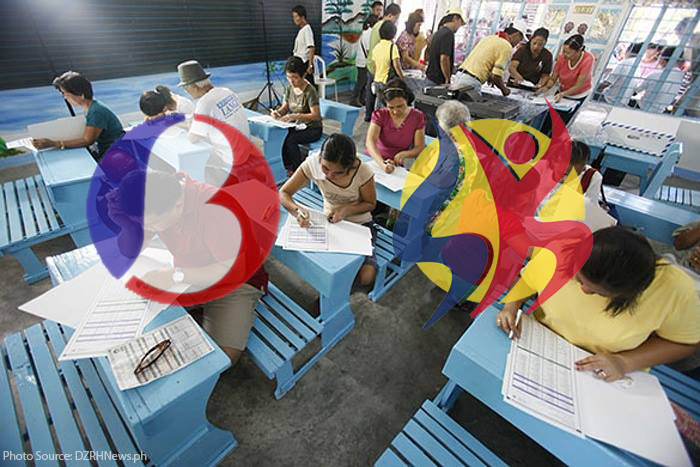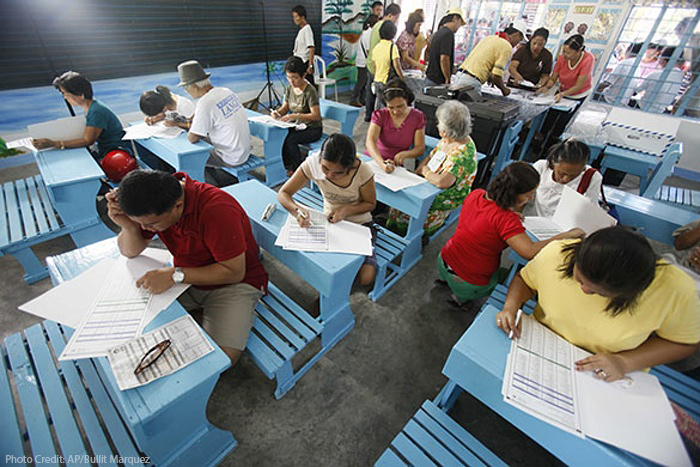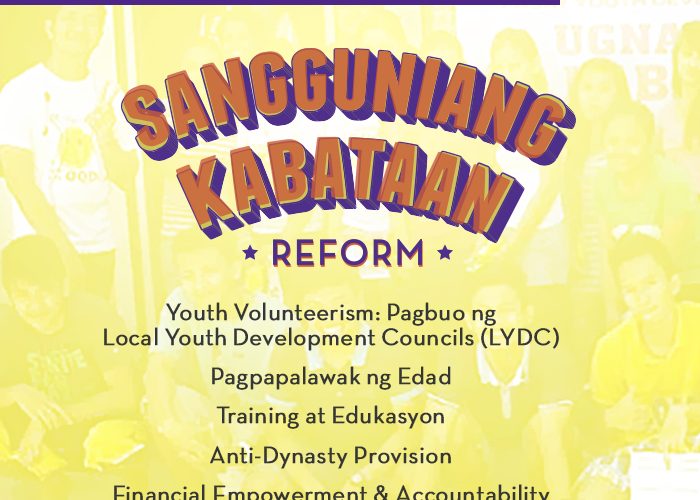Sen. Bam: No reason for delay, push through with barangay elections in May
Senator Bam Aquino slammed the move to postpone Barangay and Sangguniang Kabataan elections from May to October, saying it will further delay the people’s chance to select their new leaders.
“Huwag natin hayaang nakawin muli ang karapatan nating iboto ang ating lokal na pinuno,” said Sen. Bam. “Walang dahilan para ipagpaliban pa ito. Ituloy na ang Barangay at SK election.”
On Monday, the House Committee on Suffrage and Electoral Reforms voted 14-2 to postpone the Barangay and SK elections from May 14, 2018 to October to coincide with the plebiscite on a new Constitution.
Sen. Bam has been pushing for the holding of the barangay and SK elections, saying the selection of new village leaders is long overdue.
“Marami nang nangyaring pagpapaliban ng halalan. Panahon nang matuloy ang halalan upang mabigyan ang taumbayan ng tsansang makapili ng karapat-dapat na lider sa kanilang barangay,” Sen. Bam stressed.
Also, Sen. Bam wants to witness the full implementation of Republic Act 10742 or the SK Reform Act, the first law in the country that has an anti-political dynasty provision. Sen. Bam pushed for its passage as co-author and co-sponsor during his time as chairman of the Committee on Youth in the 16th Congress.
“Pagkakataon rin ito para makita natin kung epektibo ang SK Reform Act at kung makatutugon ito sa pangangailangan ng kabataan,” said Sen. Bam.
Under RA 10742, the age limit for SK officials is adjusted from 15-17 to 18-24 years old, making them legally capable of entering into contracts and be held accountable and liable for their actions.
The SK Reform Act also requires SK officials to undergo leadership training programs to expose them to the best practices in governance and guide their development as leaders.
The new law also mandates the creation of the Local Youth Development Council (LYDC), a council that will support the SK and ensure the participation of more youth through youth organizations.
The LYDC will be composed of representatives from the different youth organizations in the community – student councils, church and youth faith groups, youth-serving organizations, and community-based youth groups.



Recent Comments